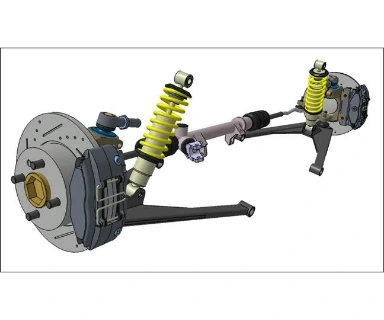


Modular trailers are vehicles that can be configured as per the size of cargo. Typically, modular trailers are built as modules of 4 and 6 axles. The can be combined to form a long rigid vehicle up to 24 axles. (practical limit). The suspension is hydraulics that ensures equal reaction on all the axles, and also ensures that the trailer is not subjected to bending stresses due to road profile. The maximum load capacity of these trailers is 20 tons per axle.
Tractor implement control is by a mechanical servo valve. The main feature is servo control to adjust the depth so that force on the implement (e. g. Plough) is maintained constant. This is force servo. Other mode of control is Position control of implement. Both the control functions are achieved by mechanical feedback linkages. An important aspect of the design is load sensing hydraulics, (for power conservation) and pressure compensated servo valve operation. The cost of the valve is also a very important criterion.
The complete design is perfected by computer simulation of the dynamics of hydraulic and mechanical system. Simulation was used for evaluating concept, perfecting the design parameters for optimum performance, understanding limitations, and evaluate the effect of manufacturing tolerances.
Hydraulics, Dynamics, Simulation, Precision manufacturing